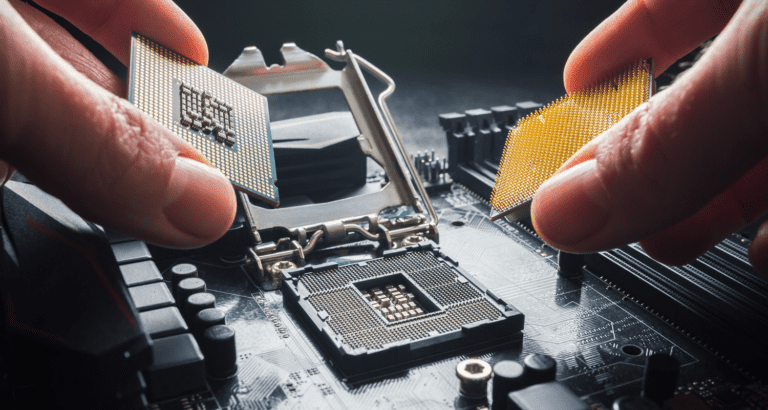AMD has finally made available four new EPYC high-end server processors with a bigger cache to carry out workload intensive operations
In a recent reveal, AMD added four new SKUs processors to its previously nicknamed Milan-X (presently EPYC) state-of-the-art chips lineup. The addition gave way to the extra cache capability on the existing EPYC series.
The new chips, codenamed 7373X,7473X, 7573X, and 7773X, have some key features that their predecessors do not exhibit. These features are prominently highlighted in their assembly, which AMD calls 3D V-Cache.
While processors are mostly made with only one silicon piece inside, these latest AMD chips feature another microprocessor die on top of their first one, allowing for a bigger L3 cache.
AMD’s plans for EPYC
Shane Rau, the computing semiconductors research vice president of IDC, said it is an essential feature for most sophisticated applications targeted by AMD with their new EPYC series. These applications come under the ‘technical computing’ domain– highly challenging enterprise workloads such as visualization and modeling, along with scientific and academic applications. He further added;
“The purpose of cache is to bring data that’s going to be used next by the processor ahead, so it’s available sooner than if you had to go back to main memory to find the data. A larger L3 cache means more data available more quickly to the processors, which the technical workloads can use.”
According to Rau, the new chips price is comparatively higher due to the new and improved cache feature. The 7373X 16-core is valued at a starting price of 4,185 USD (when you purchase 1000 or more) whereas the 7773X 64-core starts at an astonishing 8,800 USD.
Talking of the future of their chips and product strategy, Rau said;
“Intel has a much larger product stack … so if you go shopping for a processor from Intel, you’ll have more to choose from, and arguably a more finely grained segmentation of the market. AMD’s approach to the market is based on a smaller number of SKUs, but each SKU is capable of serving a broader range of workloads.”
